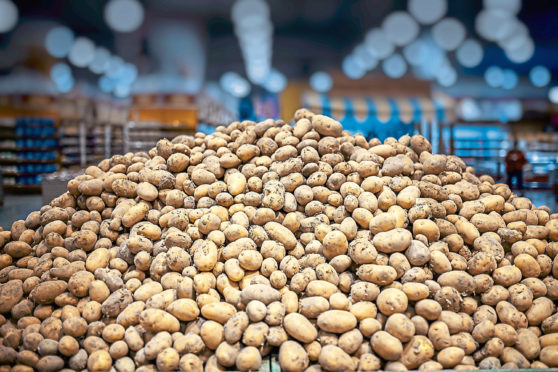A gene found in a wild plant could hold the answer to breeding blight-resistant potatoes – but GM rules may prevent it becoming a commercial reality for farmers.
Researchers at the Sainsbury Laboratory – a Norwich-based independent research institute that specialises in plant-microbe interactions – have found a late blight-resistant gene in a wild plant related to the potato.
They found Solanum americanum – the ancestor of the widespread UK wild plant black nightshade – to be “an excellent source” of late blight-resistant genes.
The laboratory’s Professor Jonathan Jones, who led the study, said the gene – Rpi-amr1 – found in the plant had resistance against all of the 19 blight strains tested in the project.
He said: “It took a long time and there were many false leads and confusing data to make sense of, but this Rpi-amr1 gene now looks like one of the best resistance genes in our armoury against late blight.
“By combining Rpi-amr1 with two other resistance genes, I think it can make a durably blight-resistant potato.”
A spokeswoman for the laboratory said GM technology was being used to put the resistant genes into Maris Piper potatoes.
She said: “EU regulations render it prohibitively expensive to bring this solution to late blight to public use.
“This may change in the UK post-Brexit and we will be explaining the merits of reform of GM regulation in our response to the government’s consultation on gene editing and other genetic methods for crop improvement.”
